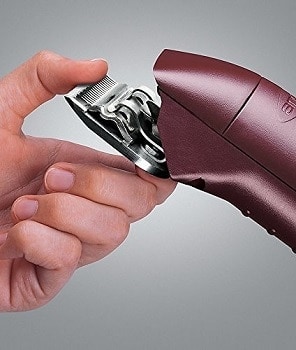
To help you choose from the range of available models, we have compiled a list of reviews of the seven best clippers for cat hairs. Choose the one that best suits your needs, and those of your cat, according to price, volume level, and the range of accessories that come with the device.
A Quick Comparison of our Favorites for 2024
| Image | Product | Details | ||
|---|---|---|---|---|
| Best Overall |

|
Andis AGC2 |
|
CHECK PRICE |
| Best Value |
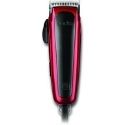
|
Andis Gentle Groom |
|
CHECK PRICE |
| Premium Choice |
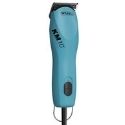
|
Wahl KM10 |
|
CHECK PRICE |

|
Wahl Bravura |
|
CHECK PRICE | |

|
Oster A5 |
|
CHECK PRICE |
The 7 Best Cat Clippers
1. Andis AGC2 2-Speed Detachable Blade Pet Clipper – Best Overall

The Andis AGC2 2-Speed Detachable Blade Pet Clipper is a dual-speed set of clippers. The two-speed settings, at 2,700 and 3,400 strokes per minute (SPM), enable you to use one speed for a full-body trim and then change the speed setting for more precise trimming of areas like the eyes, feet, and ears. The clippers are described as super-duty, which means that they can even be used for professional groomers and regular cutting, without the fear of them breaking or becoming damaged.
They also have a removable blade system and include a single UltraEdge blade, as well as blade oil to help prevent the blade from dulling and preventing the need to regularly replace it.
The 14-foot cord is long enough, even if you have to chase your cat around the room to trim the final few hairs, and the dual speed and blade quality mean that the trimmers are great if you have multiple animals at home.
They work on cats and dogs, so you won’t need multiple clippers for several pets. However, they do tend to run hot if they are used for a long period without a break.
- 2,700 & 3,400 SPM variable speed settings
- 14’ cord
- Suitable for cats and dogs
- Removable blade system
- Runs a bit hot after prolonged use
2. Andis Gentle Groom Adjustable Blade Cat Clipper – Best Value
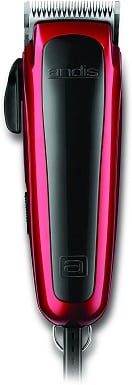
The Andis Gentle Groom Adjustable Blade Cat Clipper can be used to trim short to medium cat hair. It has an adjustable blade with 30, 15, and 10 sizes. The kit also includes 4 attachment combs from a ¼ inch to 1 inch, in ¼-inch increments. Using the different sizes of comb not only enables you to cut hair to the desired length, but it means that you can trim areas like ears and eyes, while also giving a full body trim.
The clippers have been ergonomically designed to provide comfort for the user, as well as the cat, and the clippers include a 6-foot cord, which should give you plenty of movement to keep your cat hair trim. The Andis Gentle Groom Adjustable Blade Cat Clipper is cheaper than most other sets on our list and while they should prove suitable for cutting all of your cat’s hair.
For larger animals, they can get hot and these clippers won’t work on thick fur, but they are still the best clippers for cat hair for the money.
- Cheap
- 6’ cord is convenient
- Removable blades
- Gets hot with constant use
- Not suitable for thick fur
3. Wahl KM10 Brushless 2-Speed Cat Clipper – Premium Choice

If you have a bigger budget, then the premium Wahl KM10 Brushless 2-Speed Cat Clipper is a powerful and precise set of clippers designed for long-term use. German manufacturer Wahl claims that the brushless motor will last for 10,000 hours of use.
The motor offers dual speed operation, running at either 3,000 or 2,700 revolutions per minute (RPM), which is more powerful and quicker than other clippers. The clipper is electric, which means that you don’t have to worry about recharging and battery replacement, and also allows you to use different settings according to whether you’re completing a full cut or a tidy trim. The clippers have been designed for regular and frequent use, with an ergonomic design and comfortable weighting, that will prevent wrist fatigue, even when used for several hours at a time.
The Wahl KM10 set is expensive, and you will need to use a cooling spray on tight and compact dog fur, but for regular cat cutting, they are more than powerful enough.
- Includes competition blade set
- 14’ cord
- The 2-speed brushless motor is powerful
- Ergonomically designed for comfort
- Gets hot after constant use
- Expensive
4. Wahl Bravura Cordless Cat Clipper

The Wahl Bravura Cordless Cat Clipper is a cordless pet fur clipper that has a powerful battery, offering 90 minutes of run time from just a 60-minute charge. It also has pass-through charging, which means that it can be used while the device is plugged in and charging, so a dead battery doesn’t mean you have to stop cutting and trimming.
The 5,500 SPM motor offers quiet but powerful operation. Convincing a cat to sit still and have their hair cut is difficult enough, but made increasingly difficult if your clippers are loud and vibrate a lot. The powerful motor is also maintenance-free, while the battery is a modern lithium-ion battery so will charge new every time, and shouldn’t lose charge over time.
With a 5-in-1 detachable blade set and 6 attachment guide combs included in the clipper set, you can cut to the style and length you want.
- Cordless for portability
- 90 minutes use from a 60-minute charge
- Easy maintenance
- 5,500 SPM motor
- Not suitable for long and thick fur
5. Oster A5 Turbo 2-speed Pet Clipper
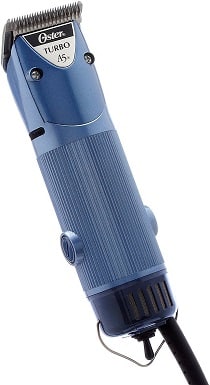
The Oster A5 Turbo 2-Speed Pet Clipper offers 3,000 and 4,000 SPM operation, which makes it suitable for a full cut or precision trimming around problem areas. Use the higher setting for a quiet all-over cut, and then change to the 3,000 SPM setting to clean up problem areas like the ears, eyes, and feet. The motor is quiet, which will make it easier to cut cats’ hair.
The clippers are electric and they are compatible with all Oster CryogenX blades, so you can choose the length and style of cut you achieve.
The clippers are suitable for trimming your cat, although they can run hot when used on long and thick hair. When clippers heat up to this extent, it means that they will size up and stop working until they cool down. Before they seize up, they can become louder and lose cutting power.
- Electric — no charging required
- Compatible with CryogenX blades
- Quiet motor for stress-free cutting
- Get hot after too much cutting
- Related Read: 12 Funny Cat Haircuts That Will Make You Laugh
6. Oster A6 Slim 3-speed Pet Clipper

The Oster A6 Slim 3-speed Pet Clipper is a lightweight clipper set, weighing in at just 0.81 pounds. Being so light means that they are easy to handle, offer precision cutting, and they can be used all day without them causing stress and strain on the wrists.
The clipper also has an ergonomically-designed handle so it is comfortable, and offers vibration-free use. Professional and frequent groomers will find that clippers become uncomfortable even after a short period if they vibrate too heavily. A heavily vibrating clipper is also more likely to stress your cat, making it more difficult to cut and trim them. Vibrations are minimized thanks to dampeners fitted around the motor, as well as the design of the comfortable grip.
Speed options are 3,100, 3,600, and 4,400 SPM. This range means that you can provide a full-body cut quickly and smoothly before changing down settings to neaten and trim areas like the ears and eyes, where precision is more important than speed.
- Vibration dampeners make cutting more comfortable
- 3-speed variable settings
- Very light design
- A little louder than expected
- Expensive
7. Andis AGC2 UltraEdge 2-Speed Detachable Blade Cat Clipper

The Andis AGC2 UltraEdge 2-Speed Detachable Blade Cat Clipper is an electric clipper that operates at two speeds, 3,400 and 4,400 SPM. The motor is powerful enough that it runs smoothly and quietly and does not need fans and vents. While these vents help to reduce temperature, they easily become clogged and covered in hair, and when this happens they prevent the motor from cooling and lead to vibration, overheating, and seizure.
The heavy-duty cord is long, so it can be used to trim a wandering cat, while the power and variable speed of the motor means that you can use this one set of clippers on multiple pets. The clipper is compatible with any Oster A-5 blades, including UltraEdge, CeramicEdge, and ShowEdge blades.
The clipper is expensive and is designed for professional use and for those with multiple pets to cut at a time. However, they do struggle with curly and thick hair. Also, their lack of vents is good when the clippers work well, but it means that they can become overheated and prevent the clippers from working properly.
- Variable speed settings
- Ergonomic, lightweight design
- Get hot after heavy use
- Won’t cut curly and thick fur
Buyer’s Guide: Finding the Best Cat Hair Clippers
Cat clippers are great for trimming cats all over, and they will also be useful when you need to trim problem areas like ears and eyes. They should work quietly, vibrate as little as possible, and they shouldn’t need charging too frequently if they are a cordless model. You should also look at the cost. While professional groomers can justify spending hundreds of dollars on a single set of clippers, these expensive and professional sets are prohibitive for most people that occasionally want to trim one or two pet cats of their own.
Strokes Per Minute
One of the main rating figures that you will see when buying cat clippers is the speed of the motor. Measured in strokes per minute (SPM), this is the number of times that the blade moves from side to side each minute. It is an important figure but is not the be-all-and-end-all when choosing the best clipper for the job. Typical clippers range from around 2,000 SPM to 7,000 SPM. For typical use, somewhere in the middle of this range is perfectly fine.
Higher speed settings mean that the blades cut more efficiently, but it also means increased noise and vibrations. If you have an especially skittish and nervous cat, he may not be able to cope with a high-speed setting. If you’re doing a lot of cutting, the high-speed setting may mean that the vibration from the clippers makes it unmanageable.
Some sets offer variable speed settings. This enables you to use a high-speed setting when tackling big jobs and is usually used for a full-body cut. The higher speed setting means that the clipper works more efficiently and should finish the job with minimal fuss. Turn the clipper down and give a more precise and accurate finish to areas like the ears and feet, where clumps of fur can grow unevenly and require a more delicate finish.
Motor Style
You may notice that some clippers boast a brushless motor. Brushless motors are more efficient, and reliable, and they tend to be quieter while also requiring less ongoing maintenance. They are also more expensive and are not considered necessary in clippers that you only use once every few months. They are found in premium and professional-grade clippers.
If your budget will stretch to a clipper set that benefits from this type of motor, then you should enjoy longer and easier operation, but it isn’t necessary unless you show your cats at competitions or have a lot of cats that require regular cuts.
Corded Or Cordless
Clippers are either corded or cordless, and each offers benefits and potential pitfalls.
- Corded clippers need to be plugged in whenever you use them and during their use. This means that you will have a wire that could potentially get in the way. Ensure that the wire is long enough that you can freely move around with it in tow. The longest wires tend to be 14 feet in length and this gives you plenty of room for you to move around the cat, rather than having to shift the cat from one angle to another. This means less stress and will make the cut easier. Corded clippers are less likely to break down, offer more power for your buck, and tend to be lower maintenance. They also have the greatest range of features and extras. Their greatest pitfall is their inconvenience.
- Cordless clippers use a rechargeable battery, for the most part. These need to be plugged in while they charge but can be unplugged during use. The lack of wire means that you can nip around your cat to cut different areas and you won’t have to fumble with loose wire to get it out of the way while cutting. Most cordless models offer between 60 and 90 minutes from a single charge, which should be more than enough to fully cut one cat’s coat. Cordless options do not usually offer the same amount of power and cost more than the equivalent corded option. Some models use standard AA batteries, but these require frequent battery changes and can lose power very quickly.
Blades And Accessories
Unless you want a simple cut that is the same length all over, you will want a clipper that has an adjustable blade or a set of detachable and replaceable blades. These come in different lengths, based on the length of hair that you want for your cat. With a good range of lengths, you can create showstopping cat cuts.
Other accessories might include secondary or additional battery packs, comb oil, and cooling oil. You may also find carry packs or storage cases, according to the type of clipper you opt for.
Conclusion
There are a lot of different cat clipper models available, including corded and cordless. Decide whether you want to be tethered by a wire or enjoy the more costly benefits of a cordless clipper set. Ensure that you get the blade size you want according to the length of coat you aim to achieve and remember that the fastest motor does not necessarily represent your best option.
Hopefully, our list of reviews of the best cat clippers has helped you find the ideal model for your requirements and your cat’s preferences or, at least, helped you eliminate those you don’t want.
We found the Andis AGC2 2-Speed Detachable Blade Pet Clipper to be the best clipper for home use. They are powerful, offer variable speed settings, and include a long cord, without being prohibitively expensive. If you’re looking for something on a lower budget, the Andis Gentle Groom Adjustable Blade Cat Clipper is a great clipper set that includes everything you need without having to pay over the odds.
We truly hope this guide helps you find the best cat grooming clippers for your needs. Good luck!
Contents
- A Quick Comparison of our Favorites for 2024
- The 7 Best Cat Clippers
- 1. Andis AGC2 2-Speed Detachable Blade Pet Clipper – Best Overall
- 2. Andis Gentle Groom Adjustable Blade Cat Clipper – Best Value
- 3. Wahl KM10 Brushless 2-Speed Cat Clipper – Premium Choice
- 4. Wahl Bravura Cordless Cat Clipper
- 5. Oster A5 Turbo 2-speed Pet Clipper
- 6. Oster A6 Slim 3-speed Pet Clipper
- 7. Andis AGC2 UltraEdge 2-Speed Detachable Blade Cat Clipper
- Buyer’s Guide: Finding the Best Cat Hair Clippers
- Conclusion












